-
 +13 +3
+13 +3How To Kill Your Tech Industry
In World War II, Britain invented the electronic computer. By the 1970s, its computing industry had collapsed—thanks to a labor shortage produced by sexism. By Marie Hicks.
-
 +21 +3
+21 +3Hidden Guns and Vermin: PC Refurbishing Nightmares
Horrific tales from real refurbishers prove there’s much worse that can happen to a computer than spilled coffee.
-
 +8 +1
+8 +1Micron Buying Out Intel's Stake in Flash Memory Joint Venture for $1.5 Billion
Micron (MU) is buying out Intel's (INTC) stake in a flash memory joint venture for $1.5 billion, the chipmakers said Wednesday. The venture produces 3D XPoint flash memory, which Micron says is 1,000 times faster than NAND memory.
-
 +16 +1
+16 +1Artificial intelligence better than physicists at designing quantum science experiments
The quantum world defies logic: wrap your brain around instantaneous messaging between distant particles, or cats that are alive and dead at the same time. An Australian crew enlisted the help of a neural network — a type of artificial intelligence — to optimise the way they capture super-cold atoms.
-
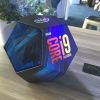 +15 +4
+15 +4Intel Core i9-9900K 9th Gen CPU Review: Fastest Gaming Processor Ever
Although Intel added more cores to its previous-gen Coffee Lake processors in an effort to keep up with AMD's Ryzen CPUs, struggles with its 10nm node obviously delayed a more significant response. The company's ninth-generation Core processors, otherwise known as the Coffee Lake refresh, represent another step forward in a contentious battle for desktop supremacy.
-
 +6 +1
+6 +1Apple will live stream its October 30 event on the web, iPad Pro and new Macs rumored
Apple has confirmed on its website that it will live stream its October event at the Brooklyn Academy of Music, which it sent out invites to press for earlier today. You can add the event to your calendar so you don’t forget from the page, which kicks off at 10 AM EDT. Note the timezone … The Academy of Music is a new venue for Apple events, but unlike the March event which was held at a school...
-
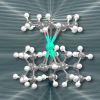 +19 +3
+19 +3Molecular memory can be used to increase the memory capacity of hard disks
Researchers at the University of Jyväskylä have taken part in an international British-Finnish-Chinese collaboration where the first molecule capable of remembering the direction of a magnetic above liquid nitrogen temperatures has been prepared and characterized. The results may be used in the future to massively increase the storage capacity of hard disks without increasing their physical size.
-
 +24 +3
+24 +3Fake Adobe Flash Installers Come With a Little Malware Bonus
A clever new cryptomining scheme downloads the latest version of Adobe for you, but adds malware to the bargain.
-
 +8 +2
+8 +2If this market report is right, we could see huge drops in RAM and SSD prices in 2019
If DDR4 memory pricing is the only thing holding you back from building a new PC or upgrading your existing one, you might be in luck if you can hold off until next year. Following up on a previous report predicting lower DRAM product prices in the fourth quarter of this year, DRAMeXchange, a division of TrendForce, believes an even bigger drop is in store for 2019.
-
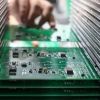 +19 +3
+19 +3Internet Hacking Is About to Get Much Worse
We can no longer leave online security to the market.
-
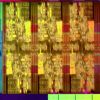 +20 +3
+20 +3Intel goes up to 8 cores for mainstream chips, with a 28 core overclockable Xeon
Intel unveiled a range of new processors aimed at the performance-desktop segment today. For the mainstream market, there are three new K-series overclockable chips branded as ninth-generation parts; seven new Core X-series chips are launching for the high-end desktop market, and for those who need still more performance, there's an overclockable Xeon chip.
-
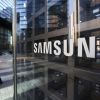 +11 +3
+11 +3Memory, not smartphones, is what is really working at Samsung
Smartphones or TVs may be Samsung's most popular products, but they are certainly not the most profitable for the company. The South Korea electronics giant has announced its estimates for the third quarter of the year, and that data points to the company achieving the highest operating profit in its entire history. Samsung is set to reach 17.5 trillion won ($15.8 billion), up 20% from the same period last year. Not only that: revenues will also reach a record 65 trillion won ($57.3 billion), almost 5% more than last year.
-
 +8 +1
+8 +1Deep Learning Just Dipped into Exascale Territory
We all expected that the Summit supercomputer at Oak Ridge National Lab would be a major part of pushing deep learning forward in HPC given its balanced GPU and IBM Power9 profile (not to mention the on-site expertise to get those graphics engines doing cutting-edge work outside of traditional simulations). Today, researchers from Berkeley Lab and Oak Ridge, along with development partners at Nvidia demonstrated some rather remarkable results using deep learning to extract weather patterns based on existing high-res climate simulation data.
-
 +19 +4
+19 +4Apple’s secret repair kill switch hasn’t been activated—yet
According to an internal Apple service document, any Mac with a T2 chip now requires proprietary diagnostics to complete certain repairs. It's been lauded by tech publications as a certified bricking machine for third-party repair technicians, but we decided to put it to the test just to make sure.
-
 +20 +3
+20 +3AnandTech Calls A12 Bionic in iPhone XS 'Just Margins Off' Best Desktop CPUs in New Review
AnandTech, known for in-depth reviews of new Apple products, today published a lengthy review of the iPhone XS and XS Max, Apple's newest flagship iPhones. AnandTech's review takes a deep dive into the A12 chip in the two smartphones, which is the first commercially available 7nm silicon.
-
 +38 +3
+38 +3Why Do Computers Use So Much Energy?
It’s possible they could be vastly more efficient, but for that to happen, we need to better understand the thermodynamics of computing
-
 +19 +4
+19 +4Machine learning aids environmental monitoring
Cash-strapped environmental regulators have a powerful and cheap new weapon. Machine learning methods could more than double the number of violations detected, according to Stanford researchers.
-
 +17 +3
+17 +3The Coming Quantum Leap in Computing
The buzz gets louder, the potential is huge, but the hurdles remain high. When will quantum computing make its mark on business? Our recent research says the answer may be sooner than many people think. Quantum computing is not a replacement for the binary classical computing that has become a staple of modern life. But to paraphrase Nobel laureate Richard Feynman, because quantum computers use quantum physics to emulate the physical world, they can solve problems that today’s computers will never have the power to tackle.
-
 +13 +2
+13 +2Upgrade Your SSH Key to Ed25519
When is the last time you created your SSH key? If you’re still using RSA with key-size less than 2048 bits long, It’s time for an upgrade!
-
 +18 +3
+18 +3The future of fake news: Can you tell a real video from a deepfake?
Take our quiz to understand what the future of fake news might mean for all of us.
Submit a link
Start a discussion




















